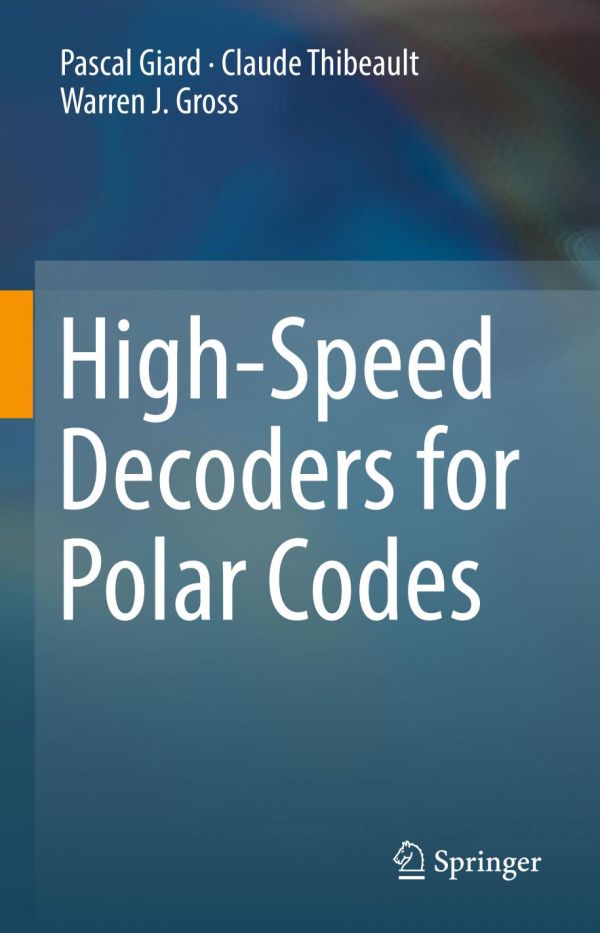Product desciption
Highspeed Decoders For Polar Codes Giard Pascal Gross Warren J Thibeault by Giard, Pascal; Gross, Warren J.; Thibeault, Claude 9783319597812, 9783319597829, 3319597817, 3319597825 instant download after payment.
A new class of provably capacity achieving error-correction codes, polar codes are suitable for many problems, such as lossless and lossy source coding, problems with side information, multiple access channel, etc. The first comprehensive book on the implementation of decoders for polar codes, the authors take a tutorial approach to explain the practical decoder implementation challenges and trade-offs in either software or hardware. They also demonstrate new trade-offs in latency, throughput, and complexity in software implementations for high-performance computing and GPGPUs, and hardware implementations using custom processing elements, full-custom application-specific integrated circuits (ASICs), and field-programmable-gate arrays (FPGAs). Presenting a good overview of this research area and future directions, High-Speed Decoders for Polar Codes is perfect for any researcher or SDR practitioner looking into implementing efficient decoders for polar codes, as well as students and professors in a modern error correction class. As polar codes have been accepted to protect the control channel in the next-generation mobile communication standard (5G) developed by the 3GPP, the audience includes engineers who will have to implement decoders for such codes and hardware engineers designing the backbone of communication networks.
Abstract: A new class of provably capacity achieving error-correction codes, polar codes are suitable for many problems, such as lossless and lossy source coding, problems with side information, multiple access channel, etc. The first comprehensive book on the implementation of decoders for polar codes, the authors take a tutorial approach to explain the practical decoder implementation challenges and trade-offs in either software or hardware. They also demonstrate new trade-offs in latency, throughput, and complexity in software implementations for high-performance computing and GPGPUs, and hardware implementations using custom processing elements, full-custom application-specific integrated circuits (ASICs), and field-programmable-gate arrays (FPGAs). Presenting a good overview of this research area and future directions, High-Speed Decoders for Polar Codes is perfect for any researcher or SDR practitioner looking into implementing efficient decoders for polar codes, as well as students and professors in a modern error correction class. As polar codes have been accepted to protect the control channel in the next-generation mobile communication standard (5G) developed by the 3GPP, the audience includes engineers who will have to implement decoders for such codes and hardware engineers designing the backbone of communication networks


